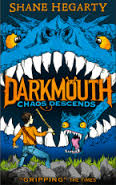This week's guest blog is from bestselling Irish writer, Cecelia Ahern. Her new book, Perfect has just been published. Take it away, Cecelia!
I’m a big reader and fan of YA novels but I never had a specific plan to write a YA series. I knew that I had younger readers but I never plan what kind of stories I’m going to write, I just write whichever story comes to me in the strongest way, the story that keeps growing and growing and won’t leave my mind. Flawed arrived in my mind, kicking and screaming, demanding to be heard and written.
When I came up with the idea for Flawed and Perfect, I knew I wanted to tell the story from the perspective of a 17 year old. Although we’re constantly learning about ourselves throughout our life, teenage years are the years when you first really start to question authority and society, and start figuring out how you really feel about things, instead of what you’re being told to feel. I wanted to take Celestine from being that logical, obedient girl who thinks in black and white, and transform her into somebody who questions, who doubts, and who finds her own voice. She suddenly realizes she has to follow her own instincts, and her heart. We do this at different stages of our lives when life throws us dilemmas but I wanted this to be the first big lesson in my character’s life, and also a surprising voice and character that could teach society a thing or two.
I always encourage finding and using your own voice. Celestine is not an obvious leader, she doesn’t realize her own strengths, she is not a leader because she wants to be but because she naturally makes the right choices. She brings compassion and logic to a society that has lost its humanity and I don’t think that shouting the loudest is necessarily what causes people to be heard, it’s the strength of the character with quiet confidence that can truly gain a following. It’s not about shouting, it’s about leading by example, it’s about action, your own behaviour, who you can influence in a positive way.
I didn’t have to alter my style of writing for the YA audience, I just told the story through the eyes of a seventeen year old Celestine. But there is one enormous difference between this series and my other novels, which is that this has a thriller feel. I wrote Flawed in 6 weeks, the fastest I’ve ever written a novel and while it took me a long time to edit, the first draft flowed out so effortlessly. My heart was pounding, my body was trembling, I felt I had so much to say about society, about how history keeps repeating itself. We have tortured each other for race, sex and religious reasons in the past and still today, I wanted to examine what it would be like to punish and segregate people for their behavior, their personal life decisions. We already label each other, public shaming is almost a sport in society, and so I took that idea of labeling literal. To mention just a few examples: The flawed rules mimic the anti-jewish decrees of World war 2, Celestine’s decision on the bus mirrors Rosa Parks defiance during the civil rights movement in the US. Flawed children who are removed from their parents mirrors what happened to children in Ireland born to unmarried mothers, and aboriginal children in Australia who were taken from their parents to dilute the gene pool. Everything in Flawed and Perfect mirrors what has happened and happens in reality.
I got completely lost in Celestine’s world. At first I thought the books would be a trilogy, mainly because it felt like the natural familiar decision, but when I was developing the story, I felt that the best way for me to tell the stories was in two novels. When I sent the outline of Perfect to my editor, he wondered if it would all fit into one book and questioned whether there should be a third, but I knew that I wanted a meaty, jam-packed novel filled with surprises and twists and turns, with plenty of content, and a conclusion to Celestine’s journey.
I’m so proud of Flawed and Perfect and hope they entertain, and inspire readers of all ages.








